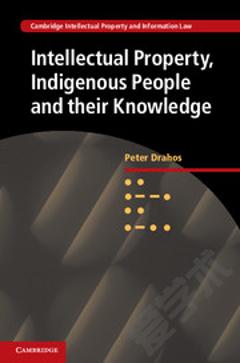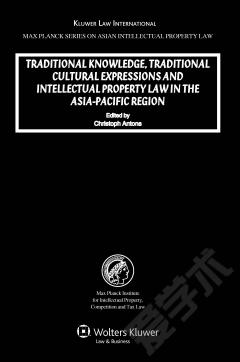Indigenous Heritage and Intellectual Property —— Genetic Resources, Traditional Knowledge and Folklore
----- 本土遗产与知识产权,第二版
For indigenous cultures, property is an alien concept. Yet the market-driven industries of the developed world do not hesitate to exploit indigenous raw materials, from melodies to plants, using intellectual property law to justify their behaviour. Existing intellectual property law, for the most part, allows industries to use indigenous knowledge and resources without asking for consent and without sharing the benefits of such exploitation with the indigenous people themselves. It should surprise nobody that indigenous people object. Recognizing that the commercial exploitation of indigenous knowledge and resources takes place in the midst of a genuine and significant clash of cultures, the eight contributors to this important book explore ways in which intellectual property law can expand to accommodate the interests of indigenous people to their traditional knowledge, genetic resources, indigenous names and designations, and folklore.In so doing they touch upon such fundamental issues and concepts as the following: collective rights to the living heritage; relevant human rights norms; benefit-sharing in biological resources; farmers rights; the practical needs of documentation, assistance, and advice; the role of customary law; bioprospecting and biopiracy; and public domain. As a starting point toward mutual understanding and a common basis for communication between Western-style industries and indigenous communities, "Indigenous Heritage and Intellectual Property" is of immeasurable value.It offers not only an in-depth evaluation of the current legal situation under national, regional and international law including analyses of the Convention on Biological Diversity and other international instruments, as well as initiatives of the World Intellectual Property Organization (WIPO), the UN Food and Agriculture Organization (FAO), and other international bodies but also probes numerous further possibilities. While no one concerned with indigenous culture or environmental issues can afford to ignore it, this book is also of special significance to practitioners and policymakers in intellectual property law in relation to indigenous heritage. This book, here in its second edition, presents the most recent state of knowledge in the field.
{{comment.content}}








 京公网安备 11010802027623号
京公网安备 11010802027623号